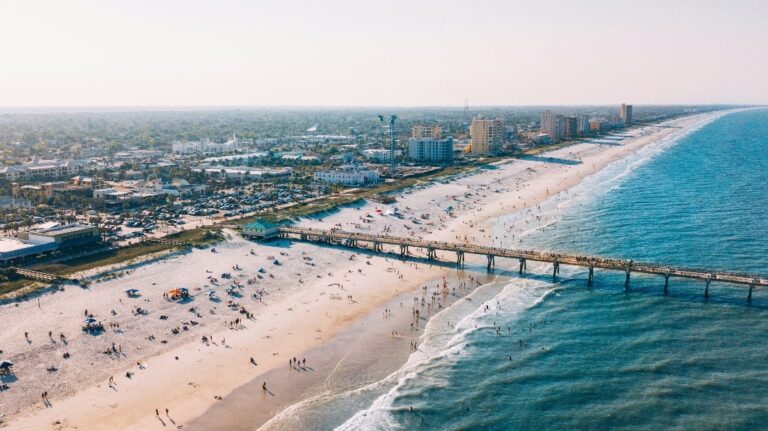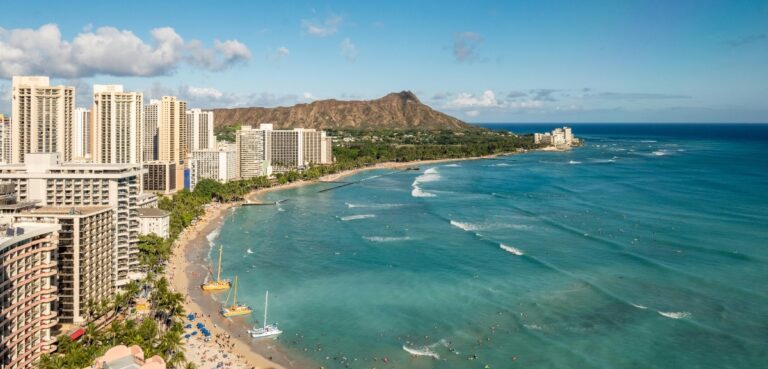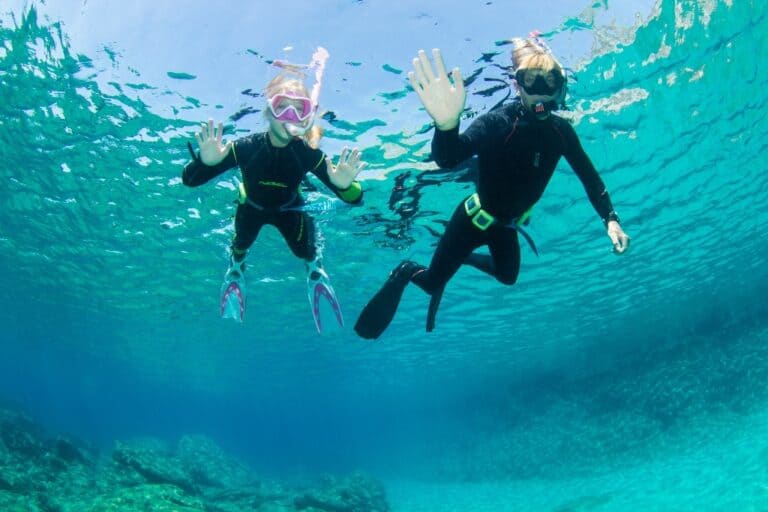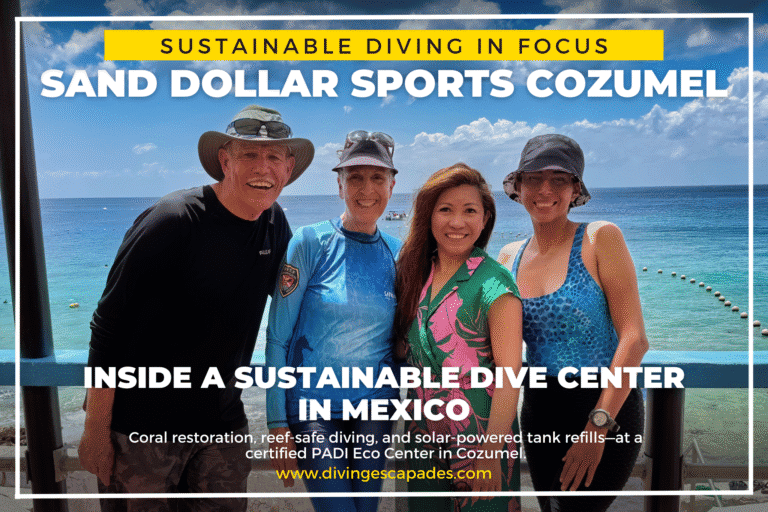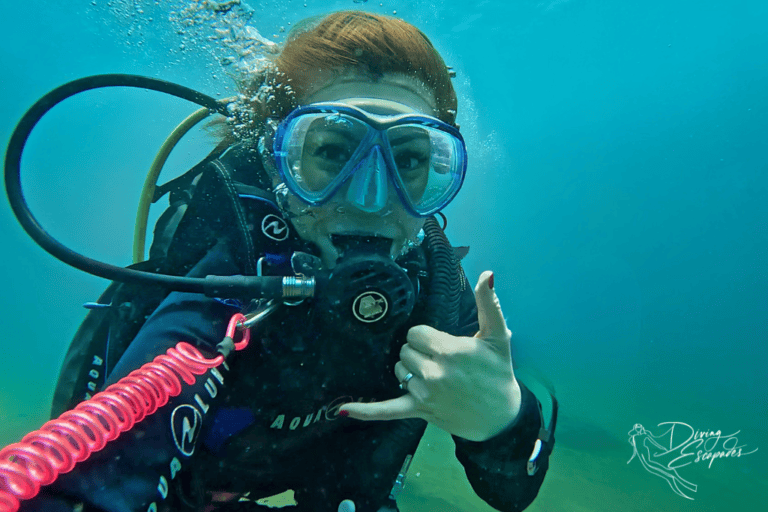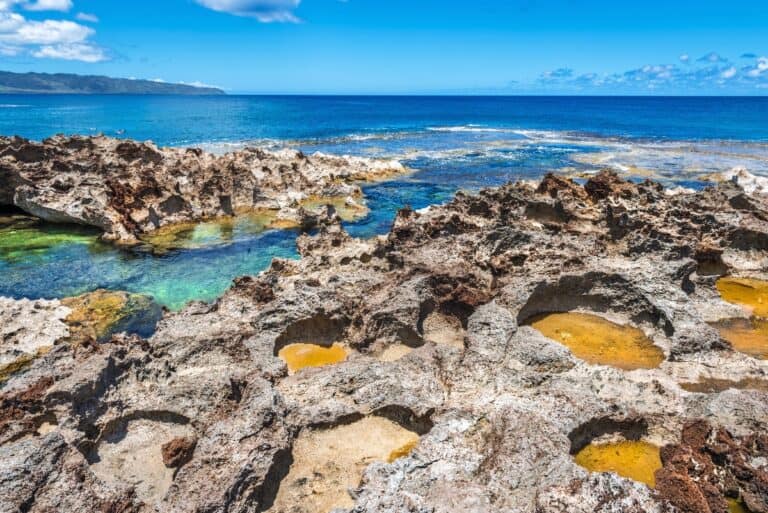Snorkeling vs SCUBA diving: What You Need To Know

Snorkeling vs SCUBA Diving – two exciting ways to explore underwater, but which one is right for you? I’ve spent years immersed in both activities and can tell you there’s magic in each.
If you’re trying to choose between these two amazing activities, you’re in the right place. Let’s dive into the key differences, similarities, and benefits to help you decide which is best for your next underwater adventure.
Snorkeling vs SCUBA Diving: What You Need To Know
SCUBA diving and snorkeling differ primarily in terms of depth, equipment, and training.
Snorkeling allows you to float near the surface with a mask, snorkel, and fins, providing an easy and low-cost way to observe marine life.
SCUBA diving, on the other hand, involves using a self-contained underwater breathing apparatus (SCUBA) to explore deeper waters, requiring specialized training and equipment.
While snorkeling is suitable for almost everyone, SCUBA diving demands a bit more commitment but rewards you with a more immersive underwater experience.
Differences between Snorkeling and SCUBA Diving
Despite their differences, both snorkeling and SCUBA diving share a common goal: to immerse you in the beauty underwater. Both activities allow you to encounter marine life, explore coral reefs, and enjoy the feeling of being underwater.
Additionally, both require an awareness of marine conservation and respect for underwater ecosystems. Whether you choose snorkeling or SCUBA diving, you’ll gain a new appreciation for the ocean’s wonders.
Pros and Cons of Snorkeling
Pros:
👍 Accessibility: You’ll find snorkeling easy to learn, and you won’t need any certification to get started.
👍 Cost-Effective: You can enjoy snorkeling on a budget since you only need minimal equipment, and excursions are usually low-cost.
👍 Convenience: Snorkeling is perfect for you when you’re in the mood for spontaneous adventures and quick beach trips. This will allow you to dive in without much planning.
Cons:
👎 Limited Depth: You’re confined to the water’s surface, which means you might miss out on exploring deeper underwater environments.
👎 Restricted Viewing: You’re limited to viewing what’s directly below or near the surface. And this is fact can limit your ability to see certain marine life.
👎 More Sun Exposure: You may be more exposed to the sun while snorkeling. This could increase your risk of sunburn if you snorkel without proper protection.
With snorkeling, you can easily and affordably explore various marine life near the surface without needing certification. While you’re limited to shallower depths, it’s a perfect way for you to enjoy spontaneous adventures and soak up the sun (and it’s easier on the wallet too).
Pros and Cons of SCUBA Diving
Pros:
👍 Depth and Duration: With SCUBA diving, you can explore depths of up to 130 feet (about 40 meters) on recreational dives. This means that you can stay underwater longer because you have a tank of air. For example, while snorkeling, you might see colorful fish near the surface. But diving lets you explore shipwrecks or coral reefs at these greater depths.
👍 Close Encounters: You get to be right next to fascinating marine life. For example, sea turtles or schools of fish, and see underwater landscapes up close. This makes the experience feel like you’re visiting another world.
👍 Adventure: SCUBA diving offers a thrilling sense of adventure and exploration. Imagine discovering hidden caves or swimming through underwater canyons—these are things snorkeling just can’t offer.
Cons:
👎 Cost and Training: SCUBA diving requires you to get certified, which involves taking lessons and practicing skills. Certification courses can cost between $200 and $500 USD. You’ll also need to buy or rent equipment like a wetsuit, tank, and regulator. All this can add up to $1,000 to $2,000 USD if purchased. Or about $30 to $75 USD per day if rented.
👎 Health Risks: There are more health risks involved, like the possibility of decompression sickness. You will need to be more careful and follow safety rules. For instance, you have to monitor your ascent and keep an eye on your air supply. (Don’t worry, this aspect is usually covered during your certification training).
With SCUBA diving, you can explore deep underwater wonders and get close to marine life. But you’ll need to invest in certification and gear to enjoy this amazing adventure safely.
Snorkeling vs SCUBA Diving: Table of Comparison
Below is a comprehensive comparison to help you decide. This comprehensive table should give you a clear overview of the differences and benefits of snorkeling versus SCUBA diving. This should at least help you decide which activity suits your preferences and circumstances best.
| Aspect | Snorkeling | SCUBA Diving |
|---|---|---|
| Depth | Surface-level, typically up to 10 feet (3 meters) | Deep water, typically 30-130 feet (10-40 meters) |
| Equipment | Mask, snorkel, fins | Mask, fins, buoyancy control device (BCD), regulator, air tank, wetsuit |
| Training | Minimal, no certification needed | Requires certification (e.g., PADI Open Water) and training |
| Cost | Low, basic gear costs around $50-$100; excursions $30-$50 | Higher, gear costs $300-$2,000; certification $300-$500; dives $50-$150 each |
| Accessibility | Easy for all ages, suitable for beginners | Requires good health and fitness; not suitable for very young children or some medical conditions |
| Duration | Limited by breath-holding capacity, typically 30-60 minutes | Extended with air supply, typically 30-60 minutes per dive |
| Marine Life | Surface encounters, such as tropical fish, coral, sea turtles | Close and varied encounters, such as sharks, rays, larger fish, shipwrecks |
| Preparation | Quick and easy, minimal setup | Requires thorough preparation, equipment checks, and safety briefings |
| Risk Factors | Low, but watch out for strong currents, sharp corals, and jellyfish | Higher, including decompression sickness, equipment failure, and the need for controlled ascent |
| Experience Level | Beginner-friendly | Suitable for beginners to advanced, with progressive certification levels |
| Health Benefits | Good cardio exercise, low impact, enhances breathing and relaxation | Full-body workout, improves strength and flexibility, boosts mental health |
| Environmental Impact | Generally low, but care needed to avoid damaging coral reefs | Potential for higher impact; responsible diving practices needed to protect marine ecosystems |
| Social Aspect | Can be a solo or group activity | Often done in groups, promotes teamwork and shared experiences |
| Convenience | Can be done spontaneously with minimal gear, ideal for beach vacations | Requires planning and access to dive sites, often involves boat trips and guided tours |
| Special Considerations | Perfect for surface intervals between dives | Requires surface intervals between dives, no flying for 24 hours after diving |
Snorkeling vs SCUBA Diving: Which is Better?
Choosing between snorkeling and SCUBA diving depends on your preferences, budget, and sense of adventure. If you’re looking for a low-effort, low-cost way to enjoy the ocean, snorkeling is your best bet.
It’s perfect for a relaxing day at the beach, where you can simply grab your gear and go. Snorkeling is easy on the wallet and a great way to have some spontaneous ocean fun.
But if you’re eager for deeper exploration and willing to invest in training and equipment, SCUBA diving offers unmatched underwater experiences.
Diving deep to see larger marine life and explore shipwrecks is really exciting. Getting yourself certified and buying your gear can be expensive, but the amazing sights and experiences make it all worth it.
So, whether you prefer the ease of snorkeling or the thrill of SCUBA diving, it ultimately comes down to what kind of underwater adventure you’re looking for.
Both activities offer unique ways to connect with the ocean. Just remember, if a fish gives you a funny look, it’s probably just judging your gear choices.

Best Locations for Snorkeling
Some of the world’s best snorkeling spots offer stunning underwater landscapes, clear waters, and abundant marine life. Here are a few must-visit destinations:
📍Great Barrier Reef, Australia: This iconic reef is a snorkeler’s paradise. With its crystal-clear waters and vibrant coral formations, you’ll encounter an incredible variety of fish, sea turtles, and even the occasional reef shark. It’s a bucket-list destination for snorkelers of all levels.
📍Hanauma Bay, Hawaii: Located on the island of Oahu, Hanauma Bay is a protected marine life conservation area. Its calm, shallow waters are perfect for beginners. The bay is teeming with colorful fish and unique coral structures, making every snorkeling trip here a visual treat.
📍Maldives: Known for their overwater bungalows and luxurious resorts, the Maldives also boast some of the best snorkeling in the world. The reefs are home to a dazzling array of marine life, including manta rays, whale sharks, and a rainbow of tropical fish. Snorkeling in these turquoise waters feels like swimming in an aquarium.
📍The Philippines: With over 7,000 islands, the Philippines offers numerous snorkeling spots. Palawan’s El Nido and Coron are particularly famous for their crystal-clear waters, vibrant coral reefs, and diverse marine life.
Apo Island is another gem, known for its turtle population and colorful coral gardens. Snorkeling here is like stepping into a postcard, with stunning underwater scenes at every turn.
Each of these locations offers clear waters, abundant marine life, and beautiful coral formations, making them perfect for snorkelers of all levels. Whether you’re a beginner or an experienced snorkeler, these spots promise an unforgettable underwater adventure.
Best Locations for SCUBA Diving
Top SCUBA diving destinations offer incredible underwater scenery, diverse marine life, and thrilling dive opportunities. Here are a few must-visit spots:
📍Great Barrier Reef, Australia: This UNESCO World Heritage Site is the largest coral reef system globally, offering stunning coral formations and diverse marine species.
📍Red Sea, Egypt: The Red Sea offers some of the most diverse and vibrant diving experiences in the world. Sites like Ras Mohammed and the Thistlegorm wreck are famous for their stunning coral reefs, rich marine biodiversity, and historical shipwrecks.
📍The Philippines: A diver’s paradise with numerous dive sites, the Philippines boasts Tubbataha Reefs Natural Park, a UNESCO World Heritage Site known for its pristine coral reefs and incredible biodiversity.
Anilao in Batangas is famous for macro diving, showcasing rare critters and stunning coral formations.
📍Maldives: Known for luxurious overwater bungalows, the Maldives also offers some of the best diving in the world. The waters are teeming with marine life, including manta rays and whale sharks.
Popular sites like Maaya Thila and Banana Reef are renowned for their rich underwater ecosystems and clear visibility.
📍Indonesia: Raja Ampat, often called the epicenter of marine biodiversity, boasts over 1,500 species of fish and 600 species of coral.
Komodo National Park is another top spot, known for strong currents, diverse marine life, and diving with manta rays and sharks.
Each of these locations provides incredible underwater scenery, diverse marine life, and thrilling dive opportunities, making them perfect for SCUBA divers looking for their next adventure.
Whether you’re a beginner or an experienced diver, these spots promise unforgettable underwater exploration.
The Wrap Up: Snorkeling vs SCUBA diving
In summary, both snorkeling and SCUBA diving have their unique advantages and challenges.
Ultimately, the choice between snorkeling and SCUBA diving comes down to your personal preference and what kind of underwater experience you seek.
Whether you choose the simplicity of snorkeling or the deeper adventure of SCUBA diving, you’re sure to create unforgettable memories under the waves.
Happy exploring!

